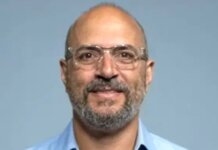PERSON OF THE WEEK: Edward Pinto is no stranger to the federal housing finance environment: He is a former executive vice president, chief credit officer and senior vice president of marketing and product management at Fannie Mae. Pinto is returning to the Capitol Hill scene, this time as a resident fellow at the American Enterprise Institute (AEI), an influential Washington, D.C.-based think tank. Pinto, who is also CEO of Sarasota, Fla.-based Courtesy Settlement Services LLC, discussed his new endeavor with MortgageOrb.com.
Q: How did you come to be associated with the AEI, and what are your new duties?Â
Pinto: About two years ago, Peter Wallison, an AEI senior fellow, and I began collaborating on examining the causes of the financial crisis, with a particular focus on the role of housing policy. It is now clear that the effort to reform our housing finance system will be the next big domestic policy issue Congress will be facing. This made it an opportune time to join AEI. I will be working with Peter, Alex Pollock and others on policy considerations and options for rebuilding America's housing finance sector.  Â
Q: What influence can organizations like AEI have on the shaping of public policy and public opinion?Â
Pinto: AEI's strong contingent of housing finance experts will play a key role in informing public opinion and shaping proposals for housing finance reform. Many policy-makers, industry participants and media outlets are turning to us for policy guidance.Â
My goal is to develop a set of policy choices that will allow a replacement of our dysfunctional housing finance system with a rational one based on the private sector, adequate capital and an absence of government affordable-housing mandates. At the same time, the Federal Housing Administration (FHA) needs to be returned to a low-income housing mission that funds sustainable mortgages. We need to return to commonsense underwriting and the concept of thrift.
Q: Government-sponsored-enterprise reform was absent from this year's 2,300-page Dodd-Frank Act. Do you think that was a mistake, and how will it be rectified in 2011?Â
Pinto: It looks like it may turn out for the best. Up to now, Congress has lacked the will to address this issue in a way that will not repeat past mistakes. There may be an opportunity in 2011 to move forward on a reform package that denationalizes the private mortgage market and returns FHA to a strengthened core mission of sustainable lending for low-income home buyers
Q: The newest crisis facing the mortgage banking industry is the so-called ‘foreclosure-gate.’ What impact will this have on the industry?
Pinto: First, to the extent that any mistakes have been made, these should be rectified – and I believe it will be, but so far, the evidence of this looks pretty scant. Calls for free houses or a national moratorium have not gained traction. Yes, there have been process flaws, but the fact remains that borrowers have defaulted, and alternatives have been exhausted. It's time to foreclose.Â
More delays provide more false hope to borrowers and delay the recovery. The real estate market must be allowed to clear, and the longer that takes, the longer the housing downturn will persist.













